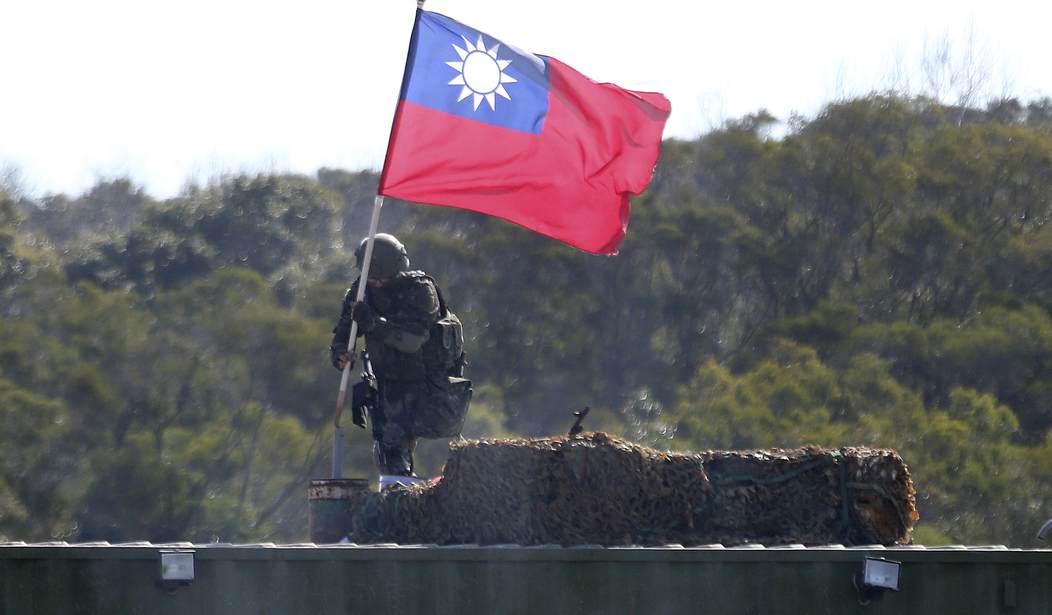The Wall Street Journal reported Thursday that a “special-operations unit and a contingent of Marines have been secretly operating in Taiwan to train military forces there, U.S. officials said, part of efforts to shore up the island’s defenses as concern regarding potential Chinese aggression mounts. About two dozen members of U.S. special-operations and support troops are conducting training for small units of Taiwan’s ground forces.”
For folks like me who distrust the Chinese Communists, and thus pray Beijing doesn’t attempt to conquer Taiwan, this is good news.
This information clearly was leaked, probably to serve as a deterrent, reminding China that a military invasion of the island — which Beijing says could occur within a few years — would run into U.S. military forces.
China has been menacingly flying dozens of military aircraft near Taiwan again this month, resulting in the worst relations between the two nations in four decades.
“The Chinese Communist Party’s aggressive behavior is intended to intimidate Taiwan and send a message to the rest of the free world,” Sen. Marco Rubio (R-Fla.) said in a statement this week. “If Beijing’s recklessness is not met with international condemnation, Xi Jinping will think he has a green light for further aggression.”
China’s foreign ministry lashed out and reiterated that “Taiwan belongs to China and the U.S. is in no position to make irresponsible remarks.”
“The relevant remarks by the U.S. side seriously violate the one-China principle…the political foundation of China-US relations,” they added, redundantly but likely purposely. “On the Taiwan question, the U.S. should abide by the one-China principle and the stipulations of the China-U.S. joint communiqués rather than something cooked up by itself unilaterally.”
In an important syndicated column Wednesday, Rich Lowry argued that America should “arm Taiwan to the teeth,” and I wholeheartedly agree.
“Until a few years ago, Taiwan’s defense budget was shockingly inadequate. Its military reserves are lackluster. Its frontline units tend not to operate at full strength,” National Review’s editor explained. “We should be fortifying Taiwan and making it as difficult as possible for China to take. That means stockpiling food, energy and munitions against a Chinese blockade. It means making its infrastructure more resilient and enhancing its cyber capabilities. It means increasing its capability to detect an early mustering of Chinese forces. It means more mines, anti-ship missiles, air-defense capabilities and unmanned systems to frustrate a cross-strait invasion.”
U.S. senators and some Canadian and Australian leaders seem to realize what’s at stake in the Indo-Pacific.
My letter with @SenatorMenendez below: pic.twitter.com/qHZo5GqtIm
— Sen. Jim Inhofe (@JimInhofe) October 7, 2021
China’s latest actions against Taiwan are unacceptable and needlessly provocative. Canada must stand with our democratic allies in the Indo-Pacific region, and publicly state our support for Taiwan as have our Australian, American, British, and Japanese allies. #cdnpoli
— Michael Chong 🇨🇦 (@MichaelChongMP) October 7, 2021
Ex-Australia PM Abbott in Taiwan calls for end of island’s isolation https://t.co/eO2HqztaO0
— Humphrey Hawksley (@hwhawksley) October 7, 2021
Meanwhile, it was announced this week that President Joe Biden is set to virtually meet with Chinese President Xi Jinping later this year.









Join the conversation as a VIP Member